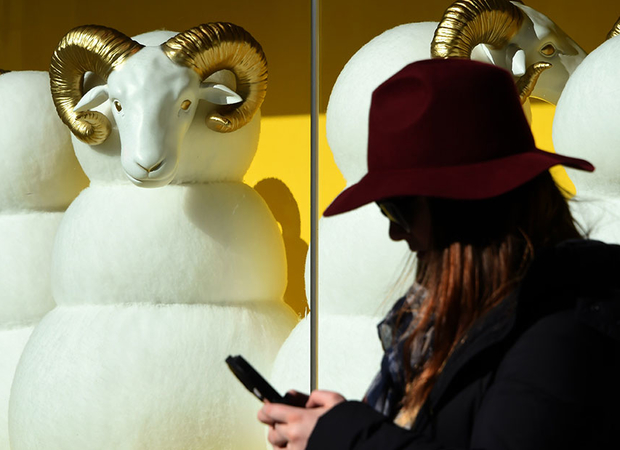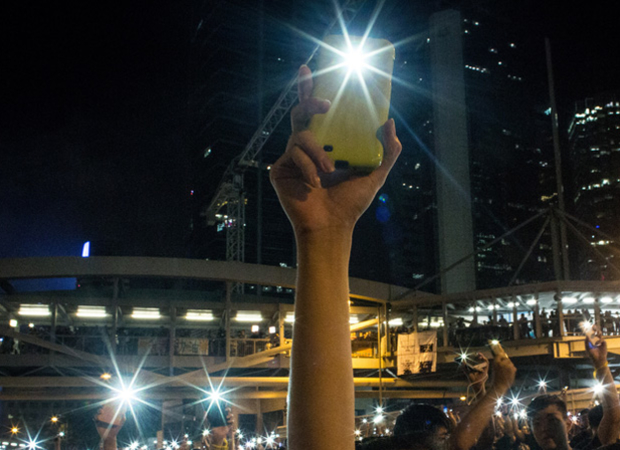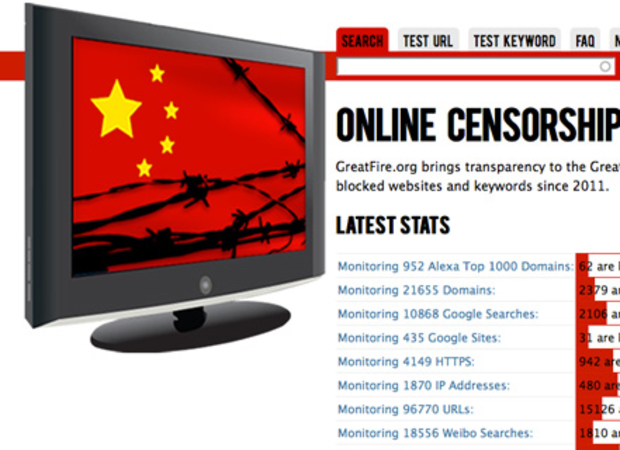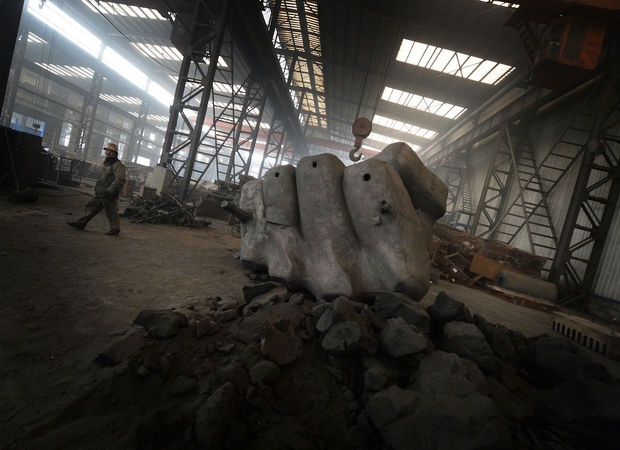
Technical Difficulties
Citing national security concerns, the Trump administration announced...

Citing national security concerns, the Trump administration announced...

As authoritarian governments around the world develop sophisticated technologies for controlling information, many observers have predicted that these controls would be ineffective because they are easily thwarted and evaded by savvy Internet users. Margaret Roberts demonstrates that even censorship that is easy to circumvent can still be enormously effective. Taking advantage of digital data harvested from the Chinese Internet and leaks from China’s Propaganda Department, this book sheds light on how and when censorship influences the Chinese public.
China has been smart and ruthless in its control of the internet within its borders. It blocks some foreign sites altogether and it censors - heavily - what Chinese are allowed to see.
Setting up a Twitter account may seem a fairly obvious thing for a political party to do, but the step has not so far worked out too well for China’s Communist Party.

Adam Segal returns to Sinica to comment on China’s recent cybersecurity law—where it came from, how it changed as it was being drafted, and how it may shape the flow of information in China in the future. Other issues discussed include the...
Google’s search service may be banned in China but parent Alphabet Inc. is hunting for workers in a further sign it has ambitions in the world’s biggest internet market.
Facebook and many of its apps have been blocked in China for years. To change that, Mark Zuckerberg has made a big point of meeting with Chinese politicians, reading stodgy Communist Party propaganda, studying Mandarin and—perhaps more daunting—...
Over the weekend the New York Times reported (paywall) that Facebook had stealthily released a photo-sharing app in the Chinese iOS App Store translated as “Colorful Balloons.” The news spread rapidly around English-language media, as it marked...
Moves by business giants Apple Inc. and Amazon.com Inc. to stop people from using censorship-skirting apps in China have renewed questions about the extent to which U.S. companies are willing to work with authorities to operate in the vast but...
Tim Cook has responded to criticisms that Apple is quietly removing apps from the App Store for the Chinese government.
Days after Apple yanked anti-censorship tools off its app store in China, another major American technology company is moving to implement the country’s tough restrictions on online content.
Another big political meeting, another crackdown on Virtual Private Networks (VPNs)—the location-shifting software many in China use to access websites banned by its government, such as Facebook, YouTube and Google.
The BBC understands that as many as 60 VPNs were pulled over the weekend. Apple said it was legally required to remove them because they did not comply with new regulations. It refused to confirm the exact number of apps withdrawn, but did not...
China is tightening control over foreign companies’ internet use in a move some worry might disrupt their operations or jeopardize trade secrets as part of a crackdown on technology that allows web surfers to evade Beijing’s online censorship....
The problem in China is that you never really know who is behind such decisions. Chinese bureaucracy is like a series of Chinese boxes that are harder and harder to open as you move toward the center.
Beijing has been criticized for its Great Firewall and online censorship. Now it's looking prescient.
Since regulators blocked the service in 2009, CEO Mark Zuckerberg has hired well-connected executives, developed censorship tools and taken a ‘smog jog’ in Beijing—but the company has made no visible headway.
Over the weekend, China announced a new, year-long crackdown on “unauthorized Internet connections.”
“We have indeed called for reinforcements over prominent online problems, this is the truth.”
The Chinese government is shutting down the mobile service of residents in Xinjiang.
Chinese officials will be able to impose a prison sentence of up to seven years on a person convicted of creating and spreading “false information” online.

The long arm of China’s massive internal security apparatus just reached further into the heart of the country’s web. On August 4, China’s Ministry of Public Security announced that it would embed law enforcement officers at major...
A story about the newly updated e-book Decoding the Chinese Internet: A Glossary of Political Slang”
Hijacking the computers of millions of innocent Internet users around the world shows China's disregard for Internet governance norms.
GreatFire.org has been under an unprecedented denial-of-service attack, receiving more than 2 billion requests per hour.
Firewall-hopping technologies see activist programmers and Chinese censors engaged in a cat-and-mouse game.
Chronicles of a country walling itself off.

Blocked websites, jailed journalists, and nationalist rhetoric have long been features of the Chinese Communist Party’s media control strategy. During the Year of the Horse, which just ended on China’s lunar calendar, President Xi Jinping and his...
Lu Wei, the Chinese Internet czar who heads a censorship system that keeps many popular American sites—including, of course, Facebook—out of China, was touring American tech companies recently. Chinese media reported that when he arrived at...
“Foreign Internet companies entering China must at the base level accord to Chinese laws and regulations,” Lu Wei, the director of China’s State Internet Information Office, said. “First, you can’t damage the national interests of the country....

When thousands of Hong Kong protesters clashed with police on Sunday, September 28, many residents of the city...

Martin Johnson (not his real name), is a co-founder of the China-based Internet freedom advocacy collective GreatFire.org....

In January, when the International Consortium of Investigative Journalists published its exposé of the use of offshore tax havens by...
In trying to block Chinese traffic going to Sophidea, the Great Firewall's operators accidentally diverted more traffic there.
The newspaper said that it may be due to a recently run article about ethnic tensions in the western region of Xinjiang.
Not only has Chinese authoritarian rule survived the internet, but the state has shown great skill in bending the technology to its own purposes, enabling it to exercise better control of its own society and setting an example for other...
For the first time, desktop computers are no longer the leading method for the country's 538 million connected citizens to get online. The report from the China Internet Network Information Center (CINIC) said over 50% of the year's new internet...
Two months ago at the London Book Fair, where China was this year’s “guest of honor,” Ma Jian, the exiled author of the Tiananmen-era novel “Beijing Coma,” inked a red X across his face in an emotional protest against Chinese censorship. It may...
For centuries, the Yangtze River -- the longest in Asia -- has played an important role in China's history, culture, and economy. The Yangtze is as quintessentially Chinese as the Nile is Egyptian or the Rhine is German. Many businesses use its...